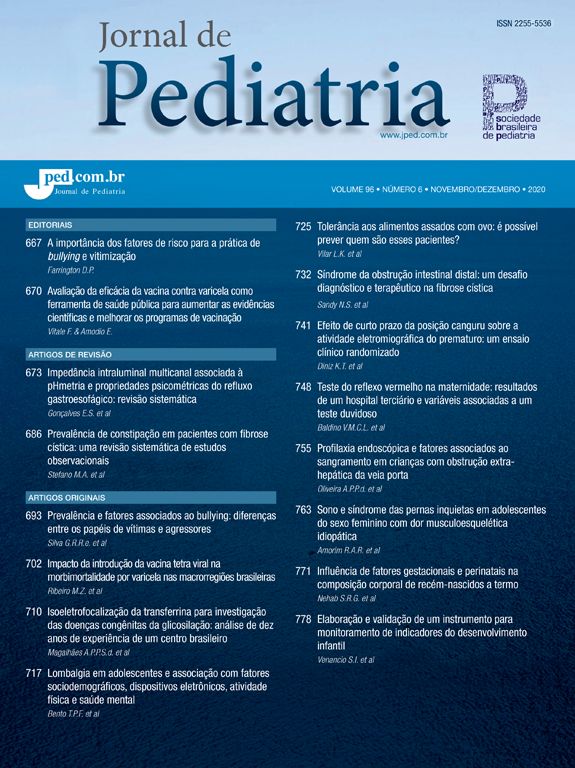To investigate the relationship between very low birth weight and learning difficulties at school by means of a systematic review of the literature, identifying patterns of learning difficulties among these schoolchildren, possible cognitive correlations, peculiarities of the lowest birth weight ranges and any interference with outcomes by socioeconomic and/or clinical factors.
Sources of dataBibliographic search (MEDLINE, LILACS, Excerpta Medica, reference lists of original articles, periodicals related to the subject, information from experts in the area and thesis and dissertation databases) on the keywords: prematurity/very low birth weight, learning difficulties/academic achievement/school performance, follow-up/results/cohort.
Summary of the findingsThe search returned 114 articles and the 18 of these were selected as having investigated learning difficulties in schoolchildren born with very low birth weights using appropriate methodology. The academic performance of these children was observed to be inferior the whole study population was compared with those born full term. The subject most compromised was mathematics. The risk of suffering from learning difficulties increased in inverse proportion to birth weight. An association was identified between very low birth weight and cognitive compromise.
ConclusionsThe systematic approach corroborated the results obtained by published studies: schoolchildren born with very low birth weights exhibited increased risk of learning difficulties when compared with those born at full term. There was a predominance of children with multiple academic subjects compromised and mathematics was the most affected. Risk was observed to follow an ascending gradient as birth weight reduced. There was an association between very low birth weight and cognitive compromise.
Investigar a associação entre muito baixo peso ao nascer e dificuldade de aprendizagem à idade escolar, através de revisão sistemática da literatura, identificando quais os padrões de dificuldade de aprendizagem nesses escolares, possíveis correlações cognitivas, singularidades nos extratos ponderais de muito baixo peso ao nascer e interferência de fatores socioeconômicos e clínicos nos resultados.
Fontes dos dadosBusca bibliográfica (MEDLINE, LILACS, Excerpta Medica, listas de referências de artigos originais, periódicos ligados ao tema, informações de experts da área e bancos de teses e dissertações), utilizando as palavras-chave: prematuridade/muito baixo peso ao nascer, dificuldade de aprendizagem/realização acadêmica/performance escolar, seguimento/resultados/coorte.
Síntese dos dadosCom a busca, 114 artigos foram captados, e os 18 com adequação metodológica foram selecionados, abordando dificuldade de aprendizagem em escolares de muito baixo peso ao nascer. Observou-se pior desempenho acadêmico destes, quando toda a população de estudo era comparada aos nascidos a termo. A área mais acometida foi a matemática. O risco de evoluir com dificuldades de aprendizagem mostrou-se maior conforme diminuiu o peso ao nascer. Constatou-se associação entre muito baixo peso ao nascer e comprometimentos cognitivos.
ConclusõesA abordagem sistemática corroborou os resultados obtidos de estudos da literatura: os escolares de muito baixo peso ao nascer apresentaram maior risco de dificuldades de aprendizagem quando comparados aos a termo. Predominou o acometimento de múltiplos domínios acadêmicos, sendo a matemática a área mais acometida. Observou-se um gradiente crescente de risco à medida que o peso ao nascer diminuía. Houve associação entre muito baixo peso ao nascer e comprometimento cognitivo.









